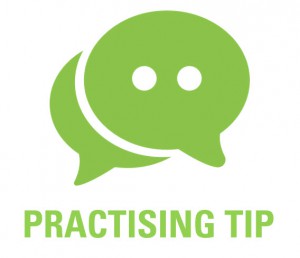“Hello, how may I help you?” Naturally, you want to come across as professional when you’re talking on the phone at work with an English speaker. These 30 handy key sentences taken from actual situations can help.
Answering the phone
Two useful examples.
- Hello/Good morning/Good afternoon. [Company name]. [Your name] speaking. How may I help you?
Example: Suppose your name is Liesbeth and you work at ElaN Languages. Then, the first thing you say when answering the phone is:
Good morning! ElaN Languages. Liesbeth speaking. How may I help you?
The caller knows who you are immediately and gets the opportunity to explain why he/she is calling.
- [Company name]. [Your name] speaking.
This is a bit more concise: ElaN Languages. Liesbeth speaking.
Or even shorter: “This is [your name].” or “[Your name] speaking.”
Calling someone
Sometimes, you will be the one calling. You can greet the person you’re calling using one of the following expressions.
- Hello, this is [your name] from [company name].
Example: Suppose your name is Sarah Vanderpoorten and you work at Unilever. Then you would say:
“Hello, this is Sarah from Unilever.”
You can also mention your last name too, if you know that whomever you’re calling doesn’t know you that well.
4. Hi, it’s [your name] from [company name].
To open a telephone conversation, you can say: Hi, it’s Sarah Vanderpoorten from Unilever.”
Asking to speak with someone
It is important to get the correct person on the phone. These are some useful options.
- May I speak with [person’s name]?
This first sentence is a question and slightly more formal than the second option.
May I (please) speak with Mr Smith?
- I’d like to speak with [person’s name], please.
Example: “I’d like to speak with Mr Smith, please.”
You can use this if you’re fairly certain that this person wants to speak with you.
Explain why you’re calling
It’s best to briefly explain why you’re calling at the start of the telephone conversation. This way, you can get right down to business with the person with whom you’re speaking.
- I’m calling to ask about/discuss/clarify…
I’m calling to ask about your current printing promotion.
- I just wanted to ask…
I just wanted to ask if you need any more articles for next month’s magazine.
- Could you tell me…?
Could you tell me the address of Friday’s networking event?
Taking messages
Does the caller want to speak to someone who isn’t there? In this case, it’s best to take a message. This can be done as follows:
- I’m sorry, she/he’s not here today. Can I take a message?
- I’m afraid he/she’s not available at the moment. Can I take a message?
This way, the caller still doesn’t know exactly why the other person is unavailable. Should you want to disclose this information, you can say the following:
I’m afraid she’s in a meeting until 4 p.m. Can I take a message?
- May I ask who’s calling, please?
Use this sentence to politely find out with whom you are speaking.
- I’ll give him/her your message as soon as he/she gets back.
After you’ve written down the caller’s message, you can say the above sentence.
Leaving a message
Have you called someone who is unavailable? Then you can leave a message for them. Several useful sentences.
- Could you please take a message? Please tell her/him that…
Could you please take a message? Please tell her that Marleen from accounting called about Mr Corleone’s expense reports.
- I’d like to leave her/him a message. Please let her/him know that…
I’d like to leave him a message. Please let him know that tomorrow’s lunch meeting has been cancelled.
Inquiring about when someone will be available
If you’d rather not leave a message, you can ask when a good time would be to call back.
- When is a good time to call?
- When is she/he going to be back?
Requesting information
Be polite when requesting information from others. We recommend posing it as a questioning using the auxiliary verb ‘could’.
- Could I ask what company you’re with?
- Could you give me your mobile number, please?
Asking the person with whom you’re speaking to repeat something
Don’t worry if you didn’t understand something that the other person said. This happens to native speakers too! Simply ask the other person to repeat the information: “I’m sorry, could you please repeat that?”
If you need to write down names, ask the other person to spell them for you. You can use the following two sentences for this.
- Could you spell that for me, please?
- How do you spell that, please?
It never hurts to double-check important information:
- Let me see if I got that right.
Let me see if I got that right. Your name is Michael Corleone, C-O-R-L-E-O-N-E, and your phone number is 555-222-1111, correct?
Asking someone to do something
If you’d like the person with whom you’re speaking to do something for you, it is best to be polite. ‘Could’ and ‘please’ are the magic words in English.
- Could you send me an email with the detailed offer?
- Would you mind sending me the report again, please?
Promising to do something
Remember that no definitive time follows the words like ‘when’ and ‘as soon as’ in English.
- I’ll ask him to call you when he gets back.
- I’ll send you the report as soon as possible.
Ending the telephone conversation
Don’t forget to thank the person with whom you’re speaking for his/her call or assistance. You can do this in several ways.
- Thank you very much for your help.
- Thanks for calling.
Language Trivia
The most mispronounced (and often misspelt) word in the English language is ‘pronunciation’.














